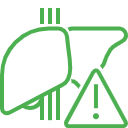Internal Family Systems Therapy
Crestone Wellness is proud to offer internal family systems therapy for families struggling with addiction in Austin.
Get Help Today
Whether it’s drugs, or alcohol, addiction can be one of the most challenging battles an individual or a family faces. Often, the roots of addiction lie buried deep within personal histories and emotional landscapes. Internal Family Systems (IFS) Therapy provides a lens to view and understand these intricate dynamics. The Internal Family Systems model provides a unique lens to view and understand these intricate dynamics. At Crestone Wellness, our licensed IFS therapists have tailored our approach specifically to address addiction and the mental health challenges it brings to Austin Texas families.
What is Internal Family Systems Therapy?
Internal Family Systems (IFS) Therapy is a transformative form of psychotherapy that explores the multilayered psyche. The IFS model recognizes that each of us possesses a mind resembling a family structure – with various inner parts playing different roles, each holding its own set of memories, emotions, and perspectives.
Origins of IFS
The Internal Family Systems model was developed in the late 1980s by Dr. Richard Schwartz, who observed repetitive patterns and internal ‘voices’ or ‘parts’ within his clients. This observation led to a therapeutic approach that aids in recognizing these distinct parts within us. A common example is when someone says, “Part of me wants to quit drinking, but another part craves it.” IFS therapy gives a framework to understand and address such internal conflicts, especially crucial in addiction therapy and when working through life transitions.
In 2015, IFS was designated as an evidence-based practice on the National Registry for Evidence-based Programs and Practices by the U.S. Substance Abuse and Mental Health Services Administration for its proven effectiveness in clinical studies. The model has gained significant popularity, with over 45,000 psychotherapists listing IFS as part of their practice as of April 2024.
Core Principles of IFS
- The Core Self: Beyond ego or consciousness, the “Self” in the IFS model is our core essence, embodying qualities like calmness, curiosity, compassion, and confidence. Developing self-compassion is a key outcome of this therapeutic approach.
- Sub-personalities or Parts: These different parts are the mini personas inside us, shaped by our experiences. They could be protectors (guarding us from harm), managers (maintaining our day-to-day life), or exiles (parts that hold pain, past traumas, or negative beliefs that affect self-esteem, often pushed out of consciousness).
- Healing: The goal of parts work in IFS therapy is for the ‘Self’ to lead the process, understand each ‘part,’ and help it find its optimal role in your internal family systems.
Substance Abuse Therapies
Benefits of Internal Family Systems Therapy for Addiction
IFS therapy provides an unparalleled approach to understanding the internal workings of individuals, especially those grappling with addiction, relationship issues, or other health conditions. The myriad of benefits it offers include:

Comprehensive Self-awareness
Addiction often acts as a veil, shrouding one’s true self. Through IFS therapy, individuals get a clearer, broader understanding of their internal dynamics. They become acutely aware of the triggers, cravings, and the underlying parts driving their addictive behaviors. This profound self-awareness acts as the foundation for lasting change and improved self-esteem.
Research has shown that IFS therapy can significantly improve self-compassion in patients, as demonstrated in a randomized controlled study published in the Journal of Rheumatology. This improved self-awareness and compassion forms the foundation for lasting recovery.
Deep Relationship Healing
Relationships bear the brunt of addiction’s chaos. Families, friendships, and romantic ties can get strained. IFS offers a roadmap to understand the underlying relational dynamics causing conflicts. With this depth of understanding, individuals and families can work towards mending broken ties, reinforcing bonds, and building bridges of trust and mutual respect.
Trauma Resolution and Processing
Many individuals turn to addictive substances or behaviors as an escape from traumas, whether they’re evident or latent. IFS provides a gentle yet profound way to unearth these traumas, including post-traumatic stress disorder, acknowledge them, and facilitate a healing process. It’s akin to cleaning and dressing a wound, allowing it to heal fully and properly. Many clients find that combining IFS with EMDR therapy or somatic experiencing provides comprehensive healing for past traumas.
A pilot effectiveness study published in the Journal of Abuse & Violence found that IFS therapy showed promising results for treating PTSD among survivors of multiple childhood trauma. Additionally, a randomized controlled trial with college women demonstrated that IFS therapy was as effective as standard treatments (CBT and IPT) in reducing depressive symptoms.
Empowerment and Autonomy
By recognizing and understanding their internal parts, individuals gain control over their reactions and behaviors. Instead of feeling enslaved by their addictions, they feel empowered to make choices that align with their true self, fostering autonomy and self-determination.
Holistic Healing
Beyond just tackling addiction, IFS promotes overall mental health and well-being. As individuals understand and harmonize their internal systems, they often experience reduced stress, better emotional regulation, improved interpersonal relationships, and an overall enhanced quality of life.
Why Choose Crestone Wellness for Family Therapy in Austin
Qualified Therapists
Our therapists at Crestone Wellness include licensed professionals (LMFT, LMSW) who are adept at integrating IFS therapy into addiction treatment. With profound empathy, they assist clients in unraveling the complexities of their internal systems, ensuring they don’t just recover but also rediscover themselves.
Tailored Approaches
We recognize that different approaches work for different people. While we specialize in the Internal Family Systems model, our therapists are also skilled in other evidence-based modalities such as Cognitive Behavioral Therapy (CBT), Dialectical Behavior Therapy (DBT), EMDR, and somatic therapy. This allows us to create a personalized treatment plan that addresses your unique needs.
Safe and Nurturing Environment
The road to recovery from addiction and mental health challenges requires a space of trust and safety. At Crestone Wellness, we’ve created an environment that feels both secure and comforting for therapy sessions.
Who Can Benefit from Austin Family Therapy at Crestone Wellness?
At Crestone Wellness, we believe that therapy, especially one as deep and transformative as IFS, holds benefits for a broad spectrum of individuals navigating life transitions. However, certain groups might find it particularly instrumental:

Structured Environment for Recovery
Our residential treatment provides a structured and supervised environment that keeps individuals away from potential triggers and distractions, allowing them to focus on their recovery. The constant supervision and support from our team also help minimize the risk of relapse.

Comprehensive and Integrated Treatment
Our residential treatment programs offer an integrated approach, addressing not only substance use disorders but also any co-occurring mental health disorders. This comprehensive approach helps to treat all aspects of an individual’s health conditions, making recovery more sustainable.

24/7 Medical Support and Supervision
Round-the-clock medical supervision ensures that any withdrawal symptoms or complications are promptly addressed. Our medical team continuously monitors and supports clients throughout the detoxification process, thereby facilitating safer and more comfortable recovery.

Peer Support
Living in a residential treatment center enables clients to build a supportive network with peers who are going through similar struggles. This peer support can be incredibly beneficial in fostering a sense of community and understanding, which can greatly enhance the recovery process.

Skill Development
Our comprehensive treatment programs help individuals develop essential skills for maintaining sobriety and managing their mental health. These skills can include stress management, emotion regulation, healthy coping strategies, and more.

Family Involvement
At Crestone Wellness, we involve family members in the treatment process. This involvement helps strengthen the support system of our clients, promoting understanding and mutual growth for everyone involved.

Reach Out to Start on Your Road to Recovery
If you or a loved one is struggling with addiction, get in touch with us at Crestone Wellness today. We’ll help you find the best residential treatment program for your needs.
We are here to walk with you every step of the way toward a healthier, more vibrant future.
Frequently Asked Questions About Our Residential Treatment
What type of disorders does Crestone Wellness treat in its residential treatment program?
Crestone Wellness offers comprehensive treatment for a wide range of substance abuse disorders, including alcoholism, drug addiction, and prescription medication misuse. We also treat co-occurring mental health issues such as depression, anxiety, post-traumatic stress disorder (PTSD), and bipolar disorder, among others.
How long does the residential treatment program typically last?
The duration of the residential treatment program can vary based on the individual’s specific needs and progress. However, typical stays can range from 30 to 90 days. Our experienced team will work closely with you to determine the optimal length of stay to support your recovery journey.
What does a typical day look like in the residential treatment program?
A typical day at Crestone Wellness involves a structured mix of therapeutic activities. This may include individual counseling sessions, group therapy, holistic activities such as yoga and meditation, educational sessions, and recreational time. All activities are designed to promote healing, personal growth, and recovery.
Are family members involved in the treatment process?
Yes, we believe that family involvement is crucial for adequate recovery. We offer family therapy sessions and educational programs to help family members understand the process of healing and learn how they can best support their loved ones.
What happens after the residential treatment program?
At Crestone Wellness, we understand that recovery is a lifelong journey. Following the completion of the residential treatment program, we offer discharge planning and support, which may include ongoing therapy, a support group, an outpatient treatment program, and resources to help maintain sobriety and mental well-being. Our team will work closely with you to develop a discharge plan that best suits your ongoing needs.





